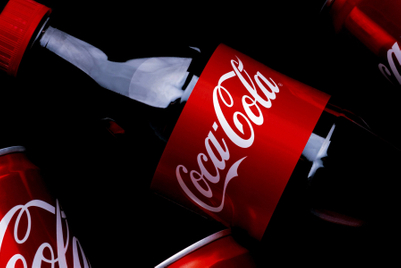
Besides Coca-Cola, 100 other American brands and products including Starbucks, Colgate, McDonald’s and Maybelline will also be targeted.
A spokesperson from the Muslim Consumers Association of Malaysia said its latest protests would “teach a lesson to Israel and its allies”.
Fuelling the boycott further is former Malaysian premier, Mahathir Mohamad, who has also urged employees of McDonald’s and Starbucks to resign from their jobs while calling on his countrymen to stop using the American dollar and USproducts.
Coca-Cola has since responded by stating that the American firm and its bottling partners do not support any country, government and political or religious causes and that the current Malaysian boycott could hurt business.
"As with everybody else, we are deeply touched by the human side of the situation in the Middle East," said Kadri Taib, public affairs and communications director for Coca-Cola Malaysia, in a statement.
"Given the local nature of our business, we believe that calls for boycotts of our products are not the appropriate way to further any causes, as they primarily hurt the local economy, local businesses and citizens.”
The soft drink giant further added that 60 per cent of its workforce in Malaysia, or 1,700 employees, were Muslim. The US is also Malaysia’s top trade partner after Singapore.
One regional public relations head has recommended that Coca-Cola immediately distance its brand from local politics and issues. “Mahathir is pulling iconic brands into politics and they would do well not to be sucked in.”
He added that Coke could start leveraging local communities and meetings such as “local mosque heads and Malay-language publications and blogs” to do damage control while also leveraging “supportive Chinese consumers”.
Another source warned that it is “difficult to look into the crystal ball or predict” if similar boycotts would be staged in neighbouring countries including Singapore or Indonesia.
“Because of social media, the potential is there. But people must stop and analyse if the information being fed to them is accurate. What we’re seeing in Malaysia is largely down to fear and emotion which is sad as they’re moving away from the issues at the core of it all [the Israeli assault on Gaza].”
A brand consultant added that Coke has its own brand agenda and is not the political brand that people would make it out to be. He added that if the company sticks to its core values which are centred on wholesomeness, the company will eventually survive this latest episode.
Further update





.jpg&h=334&w=500&q=100&v=20250320&c=1)
.jpg&h=334&w=500&q=100&v=20250320&c=1)

.jpg&h=334&w=500&q=100&v=20250320&c=1)


.jpg&h=334&w=500&q=100&v=20250320&c=1)



.jpg&h=268&w=401&q=100&v=20250320&c=1)



